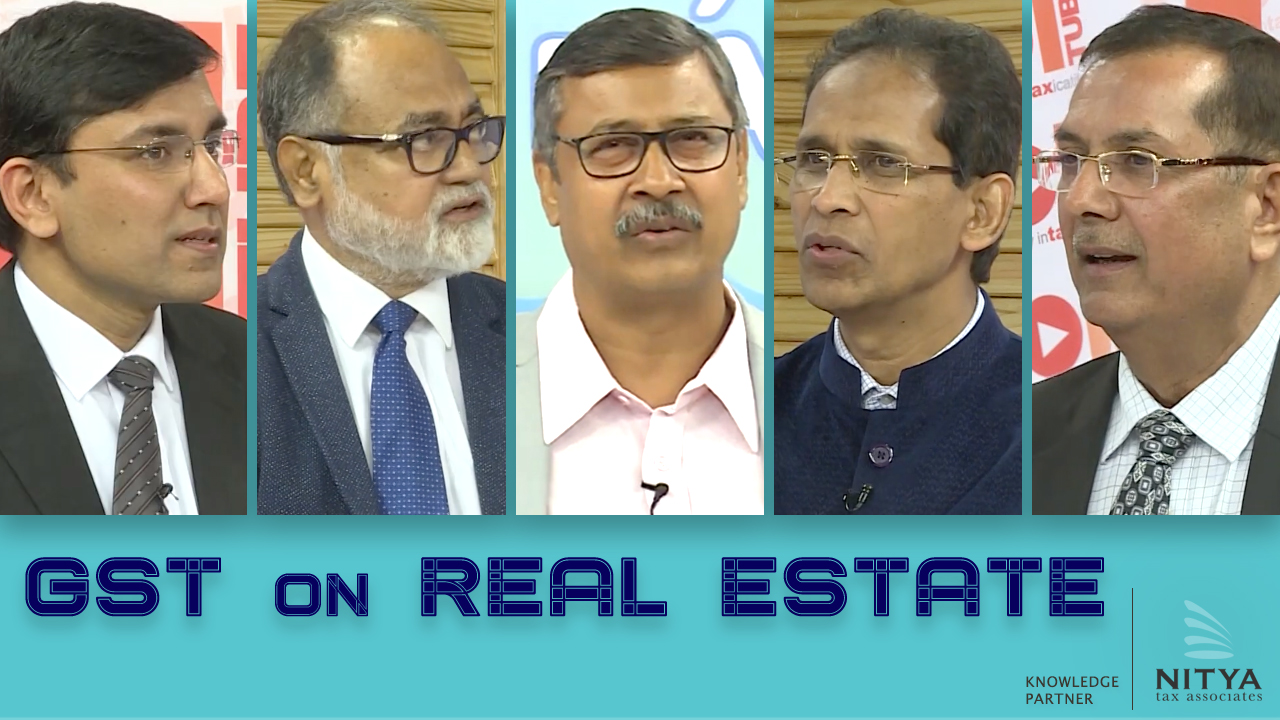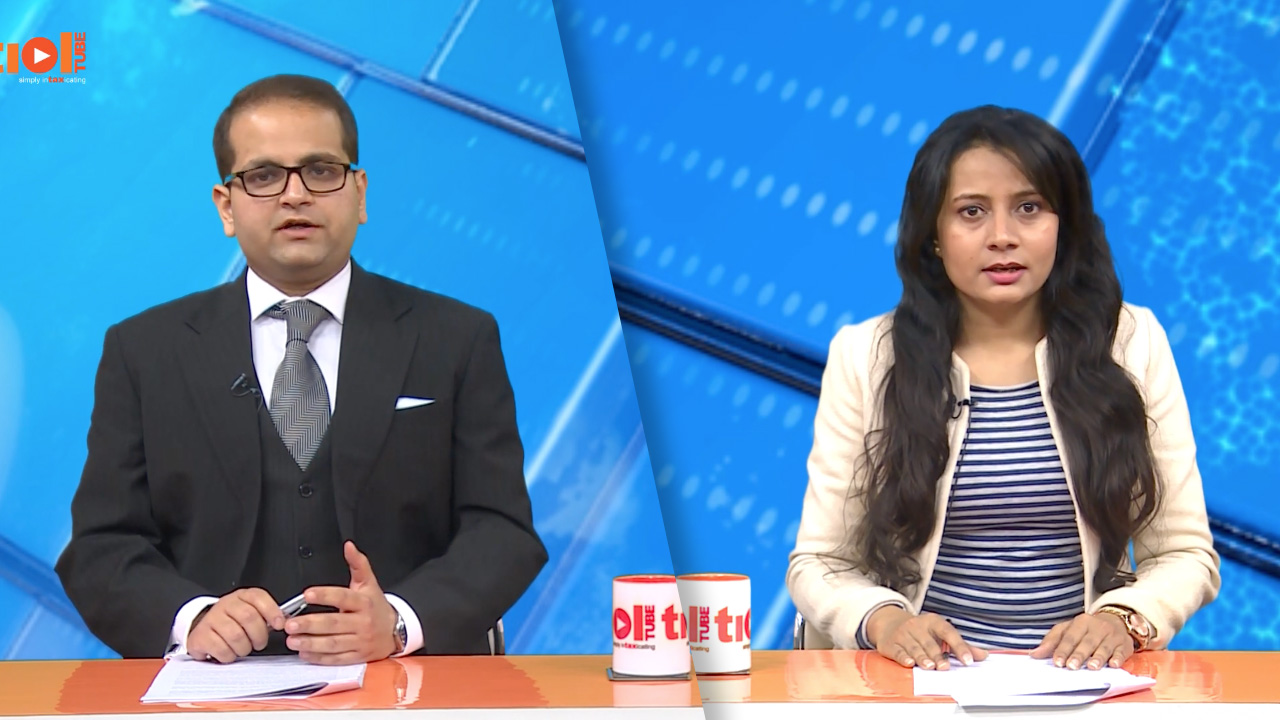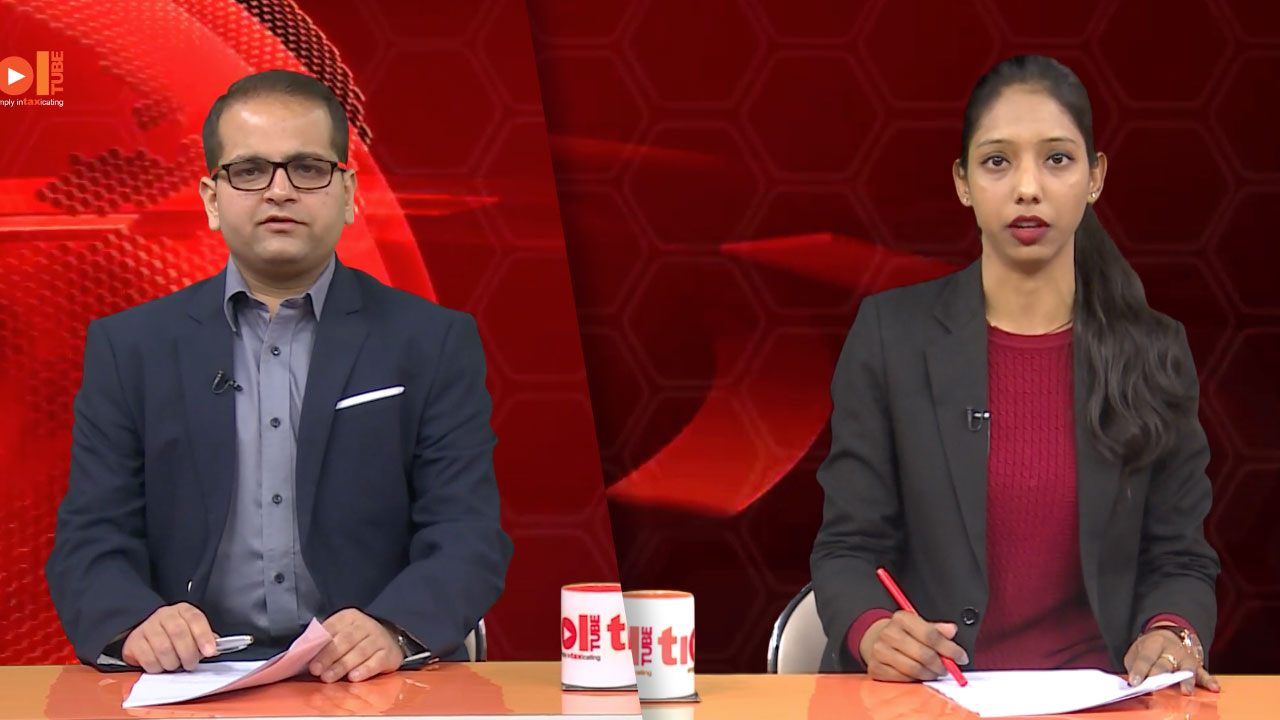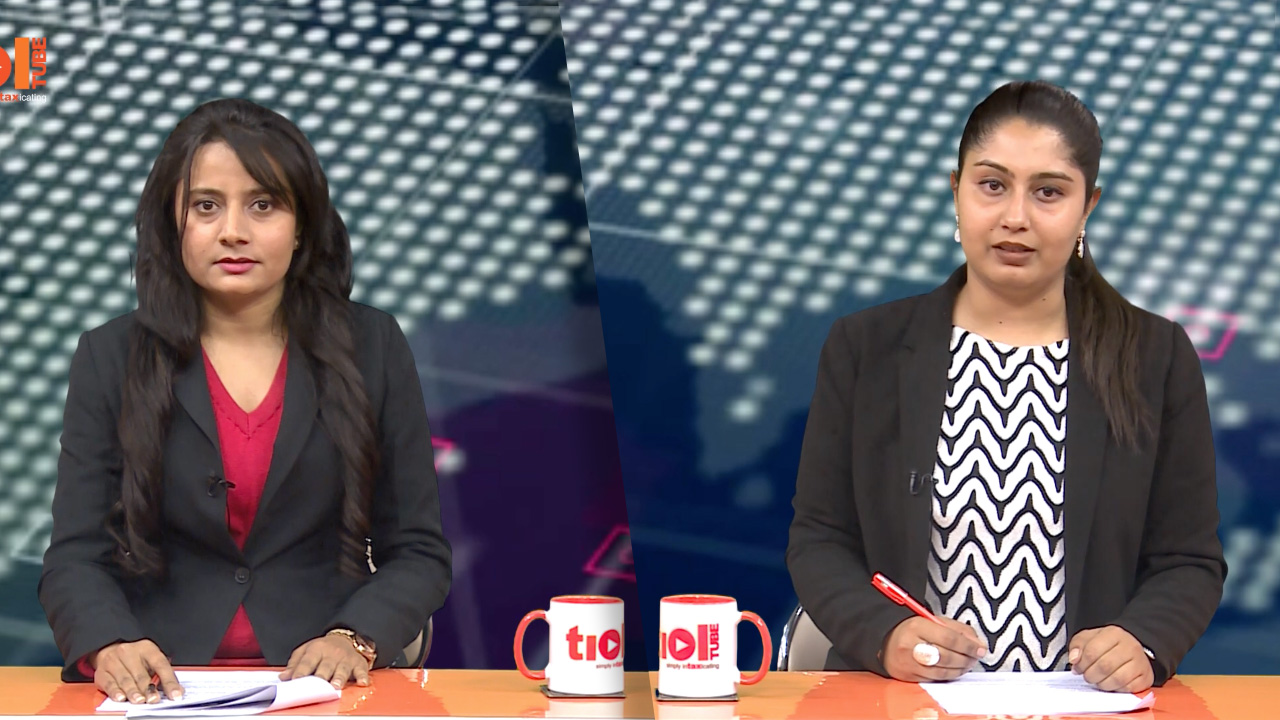|
SERVICE TAX 2019-TIOL-885-CESTAT-BANG
Ravindu Motors Pvt Ltd Vs CCT
ST - Appellants are not liable to penalty u/r 15(1) of CCR, 2004 as there is no proposal in the SCN to impose penalty thereunder and the only proposal was for imposition of penalty u/s 78 r/w rule 15(3) which the Commissioner(A) had held as untenable in law - Both the appeals are allowed by way of remand to verify compliance of rule 6(3A) of CCR: CESTAT [para 6]
- Matter remanded: BANGALORE CESTAT
2019-TIOL-872-CESTAT-ALL
Indira Gandhi Rashtriya Uran Akademi Vs CCE & ST
ST - The appellant provides Commercial Training to certain candidates - The Revenue opined that such activities were taxable as 'Commercial Training or Coaching Service' - Duty demands were raised under this heading - Later, the Tribunal quashed such demands on grounds that services provided by the appellant were not taxable - The Revenue's appeal contesting the Tribunal's order, was dismissed by the High Court - Meanwhile, after duty demands were raised by the adjudicating authority, the appellant obtained registration and began paying service tax on its activities, till the matter was settled by the Tribunal - It neither paid service tax under protest not took recourse to provisional assessment - Pursuant to the High Court's order, the appellant claimed refund of tax paid in the relevant period - Such claim was filed on grounds that tax had erroneously been paid - The Revenue denied such refund on account of being barred by limitation, as well as on grounds of unjust enrichment.
Held: The consequence of the High Court's order relates to the demand which was earlier confirmed by the original authority for the relevant period and if the appellant deposited any amount towards this confirmed demand, the same would be refunded to the assessee - In the present case, the refund claimed by the appellant is for a period subsequent to the period involved in the earlier proceedings - This has no relevance to the earlier demand proceedings & so such claim must be independently adjudgded u/s 11B of the CEA 1944 - Besides, as per mandate of Section 11B, the relevant date is the date of payment of duty and the refund claim must be filed within one year from such relevant date - As the appellant did not pay duty under protest, the refund filed beyond period of one yeat from the relevant date, must be goverened by the provisions u/s 11B - As the refund claimed by the assessee has no connectiobn with the earlier duty demanded by the Revenue has no connection with the duty demand raised earlier, the appellant's refund claim is correctly rejected, having been filed beyond the period of one year from the relevant date: CESTAT (Para 2,3,6)
- Assessee's appeal dismissed: ALLAHABAD CESTAT
2019-TIOL-870-CESTAT-ALL
Standard Auto General Engineers Vs CCE & ST
ST - The assessee is engaged in manufacture of machinery parts for sugar mills - Inasmuch the assessee was manufacturing various parts attracting concessional rate as also full rate, they availed the Cenvat credit in respect of various inputs used in manufacture of both the types of parts - According to the appellant, though they were intending not to avail the credit in respect of inputs which have gone into the manufacture of parts attracting concessional rate, but such credit to the extent of Rs.2,14,336.00 was excess availed by them inadvertently - The assessee paid the duty by reversing Cenvat credit along with interest - To that extent, imposition of penalty upon him is not justified - As regards the balance amount the assessee have paid the same before the adjudication order - It is the assessee's contention that the same was to be reflected by them in returns which were yet to be filed - Inasmuch as assessee have paid the interest by delaying deposit of Service Tax, the same has to be considered as penal in nature, as held by Tribunal in case of Jas Telecom Pvt.Ltd. - 2015-TIOL-2845-CESTAT-BANG as also in case of Indo-Nippon Chemicals Co.Ltd. - Assessee having reflected their activities in their books of accounts, it cannot be held that there was any intention on their part to evade payment of duty - Accordingly while confirming the demands along with interest, the penalties imposed upon assessee are set aside: CESTAT
- Appeal partly allowed: ALLAHABAD CESTAT
CENTRAL EXCISE
2019-TIOL-127-SC-CX
Bajaj Auto Ltd Vs UoI CX - The appellant company seeks to know whether a manufacturing entity, which is exempted from payment of Central Excise duty, is liable to pay National Calamity Contingent Duty (NCCD), Education Cess (EC) & Secondary & Higher Education Cess (SHEC) - The appellant was paying an automobile cess but were not paying any NCCD, EC & SHEC - Upon audit conducted during the relevant period, the Revenue found the appellant to be liable to pay the three cesses - Duty demands were raised - Later, the High Court of Uttarakhand dismissed the writ petitions filed by the appellant herein - Hence the present appeal.
Held - The issue as to whether or not a manufacturing unit exempted from payment of Excise duty is liable to pay EC & SHEC, stands settled in favor of the appellant by the Apex Court's judgment in SRD Nutrients Pvt. Ltd. v. Commissioner of Central Excise, Guwahati, where it had been held that EC was a surcharge levied @ 2% on Excise duty payable - It was also held that if no Excise duty was found to be payable, being exempted, then no liability of EC would arise as well, considering that the EC is to be calculated on the aggregate of Excise duty - Following such findings, no EC or SHEC is payable in the present case - Regarding NCCD, the Apex Court in SRD Nutrients Pvt. Ltd. also referred to the judgment of the Rajasthan High Court in Banswara Syntex Ltd. v. Union of India wherein it was held that surcharge partakes the character of the parent levy, regardless of the objective behind the surcharge - NCCD is the same as an Excise duty & where it takes the character of the Excise duty levied on the product, the NCCD would also be subject to the Excise duty provisions relating to manner of collection of product & obligations of the taxpayer - Hence if Excise duty is exempted, then NCCD being levied as an Excise duty would be entitled to benefit under exemption notification, which states that exemption is from the "...whole of the duty of excise or additional duty of excise..." - Therefore the appellant is not liable to pay NCCD - Thus the orders of the High Court are quashed & the demand for payment of EC, SHEC & NCCD is set aside: SC (Para 2,5,6,7,10,11,13,22)
-
Assessee's appeal allowed
: SUPREME COURT OF INDIA
2019-TIOL-681-HC-MUM-CX
Mahindra Cie Automotive Ltd Vs CCT, CGST
CX - Appeal filed against the order of Tribunal - It is urged on behalf of assessee that the impugned order of Tribunal is a nonspeaking order - This as it has been passed without recording, much less considering the assessee's submissions made during the course of hearing before the Tribunal - So far as issue relates to the goods received under fictitious invoices is concerned, the impugned order of Tribunal does record the assessee’s submissions and only after consideration of the same has come to the conclusion that the issue would require reconsideration by Adjudicating Authority - Therefore, this issue was remanded to the Adjudicating Authority - So far as issue relates to the goods returned by the customer, the scrap generated in the hands of jobworker and the goods claimed to have been destroyed in the course of manufacture, the impugned order of Tribunal merely proceeds to record its conclusion - When an Appellate Authority is in agreement with the lower authority's decision, it does not absolve him to briefly indicate his reasons in the context of submissions made in the appeal by the party - On the said issues, the impugned order does not record any submissions made by the parties before it - The Tribunal is a final fact finding Authority under the Act - It must necessarily record the essence of dispute before it and give its findings on consideration of submissions made in the context of the dispute - It is only when such an exercise is done, the order would be a speaking order - Therefore, the substantial questions of law are answered in in favour of appellant and against the respondent - Therefore, the impugned order of Tribunal is set aside - The appeal is restored to the Tribunal for fresh decision on the above issues after consideration of submissions made by the parties being reflected in the order passed by the Tribunal: HC
- Appeal disposed of: BOMBAY HIGH COURT
2019-TIOL-873-CESTAT-DEL
CCE & ST Vs Amd Industries Ltd
CX - The assessee manufactures Crown Cork/Pet Pre Form - During the relevant period, the Revenue issued SCNs claiming that the assessee availed credit on payment of commission paid to selling agents & commission agents - The Revenue opined that credit could not be availed on the same - It opined that the selling agent is directly concerned with sales rather than sales promotion & as such the services provided by such commission agent did not appear to qualify as 'input service' as per Rule 2 (l) of the CCR 2004 - SCN was issued proposing duty demand with interest & penalty - The same was confirmed upon adjudication & equal amount of penalty was imposed under Rule 15(2) of CCR, 2004 - On appeal, the Commr.(A) reversed such findings, observing that the service qualified as input service, as per Circular No. 943/4/2011-CX dated 29 April 2011 and Notfn No. 02/2016-CX-(NT) dated 3 February, 2016 - Hence the Revenue's appeal.
Held: It is the view of several benches of the Tribunal and of several High Courts that cenvat credit is available in respect of sales commission - Moreover, the Notfn No. 02/2016-CX-(NT) dated 3 February, 2016 has retrospective efect - Besides, even prior to 03.02.2016, the activity of a sales commission agent was in the nature of sales promotion - Hence the O-i-A warrants no interference: CESTAT (Para 3,4,8)
- Revenue's appeal dismissed: DELHI CESTAT
2019-TIOL-871-CESTAT-AHM
Admark Polycoats Pvt Ltd Vs CCE & ST
CX - The assessee have paid service tax on reverse charge basis in respect of services received from overseas by utilizing their Cenvat credit and after making the payment of service tax, the same amount was taken as Cenvat credit in their Cenvat account - In common O-I-O, the demand of service tax was made on service received from abroad on reverse charge basis on the ground that assessee had wrongly paid service tax by utilizing Cenvat credit - Consequently, in same order, for the said service tax paid by them, the demand was confirmed - In the order of this Tribunal dated 20.11.2017, the issue of wrong utilization of Cenvat credit for payment of service tax has been decided in favour of assessee - If that be so, then the assessee has correctly made the payment of service tax and the same is available as Cenvat credit to them - Accordingly, assessee is entitled for Cenvat credit in respect of service tax paid on reverse charge basis: CESTAT
- Appeal allowed: AHMEDABAD CESTAT
2019-TIOL-674-HC-P&H-CX
CCE & ST Vs Sada Shiv Ispat Ltd
CX - The assessee company manufactures Iron and Steel goods, falling under Chapter Heading 72 & 73 of Schedule I to the CETA 1985 - The assessee unit is managed & controlled by two persons, namely Sunny Garg & Kewal Garg - They also control and manage three other sister units - The DGCEI received intelligence inputs during the relevant period, that the units were engaged in clandestine removal of finished goods without payment of duty, to an entity whose proprietor was a relative of Kewal Garg - Hence, search proceedings were conducted at the premises of all these companies, whereupon shortage of raw material and finished goods were detected at the premises of the assessee company & its sister unit - Meanwhile excess stock was found at the premises of the other entity - An amount of cash was also recovered from the residence of Sunny Garg & Kewal Garg - Statements of some persons were recorded - Hence SCNs were issued, alleging clandestine removal of goods - On adjudication, duty demands and penalties against all firms and the proprietors, was confirmed - On further appeal, the Tribunal quashed such O-i-O - Hence the Revenue's appeal.
Held: It is seen that an identical appeal has been filed by the Revenue, being CEA No.8 of 2018 (Commissioner of Central Excise & Service Tax, Chandigarh II vs. Kewal Garg) - As such appeal was dismissed by the High Court, the present appeal stands dismissed as well: HC
- Revenue's appeal dismissed: PUNJAB AND HARYANA HIGH COURT
CUSTOMS
NOTIFICATION 15/2019-Cus (NT/CAA/DRI)
2019-TIOL-683-HC-DEL-CUS
International Lease Finance Corporation Vs UoI
Cus - The petitioner claims a direction to the third respondent (“CELEBI”) to refund demurrage amount, paid by it pursuant to directions of the court, to secure the release of its aircraft engine - The petitioner owns and leases aircrafts, had entered into a transaction with M/s Kingfisher Airlines - Kingfisher's defaults led to detention of some aircrafts by various revenue authorities including the customs department, as a consequence of which, the engine of one of these aircrafts was removed - No doubt the penalty imposed by Customs authority contemplated by clause 10.1.10 (a) was set aside by CEGAT - However, that per se in the opinion of the court is not conclusive of the issue, because Clause 10.1.10 (b) visualizes a situation that is answered by the facts of this case - It states, in effect that demurrage cannot be waived if there is delay “by reason of dispute in the assessable value or for revalidating or correcting the license in ordinary course of appraisal” - The petitioner denied, categorically its liability to pay duty and said that the goods were exempt because of some notification - The adjudicating officer's findings were otherwise; even CEGAT did not disturb them; rather it went on to hold that detention was justified - In these circumstances, CELEBI acted within its rights to refuse and turn down the request for demurrage waiver and consequent refund of money deposited - Waiver of demurrage charges cannot be issued for the asking; therefore a court in judicial review cannot issue a direction without considering the reasons– if they are apparent, that underlie rejection of a request for exemption or waiver - After all, warehousing and at the behest of the law is a commercial activity, for which the warehouseman or service provider (like CELEBI) invests with its resources, deploys manpower and creates infrastructure - The fee or consideration payable are determined by duration or period for which warehousing is necessary, the kind of storage provided– including the safety and security to the goods - Unless the rules or relevant policy clearly mandate waiver from such services, courts cannot issue directions to such service providers - CELEBI relied on Clause 10.1.10 (b) to say demurrage waiver was precluded - In so saying, CELEBI was consistent with its policy - Petition is dismissed; in the circumstances the petitioner shall pay the costs of these proceedings, to CELEBI: HC
-
Petition dismissed
: DELHI HIGH COURT
2019-TIOL-682-HC-DEL-CUS
Rain Cii Carbon Vizag Ltd Vs UoI
Cus - The petition is filed impugning the decision of DGFT, as recorded in minutes, insofar as it relates to apportionment of unutilised quota of Raw Pet Coke ("RPC") amongst various applicants including the petitioner - The petitioner is engaged in manufacture of Clacined Pet Coke ("CPC") and requires RPC as a feed stock for manufacturing CPC - The petitioner is aggrieved with the manner in which the excess surrendered quantity has been allocated - The manner in which the distribution of the excess quantity has been distributed, is manifestly irrational - This is so because the respondents have allocated quantities for making up the shortfall with reference to the production capacity of applicants and not their requirements to meet their production capacity - Admittedly, the production capacity of the manufacturers of CPC is significantly lower than the input (RPC) required to exhaust the said capacity - Since, it is apparent that the endeavour of respondents was to allocate the unutilised quantity on the basis of the shortfall, it would be apposite for the respondents to allocate the same on the basis of the shortfall, subject to the limit that the total allocated quantity does not exceed the half yearly input capacity - It is pointed out that the input output ratio in the case of petitioner is approximately 1.5:1, as is apparent from the letter dated 13.11.2018 issued by the Andhra Pradesh Pollution Control Board - The said letter indicates that the petitioner's intake capacity has been determined as 7,05,600 MT, which is approximately one and a half times the annual production capacity of 5,11,000 MT - It is thus, clear that even if the excess quantity is distributed in the ratio of shortfall as determined on the basis of the quantity of RPC applied and allocated, the total quantity allocated would be below the quantum of RPC required by the petitioner to exhaust its half yearly production capacity - Similarly, the respondent may verify that quantity allocated to other two applicants also does not exceed their intake capacity to meet their half yearly production capacity - The allocation as made in the impugned minutes, is set aside and the respondents are directed to re-compute the allocation of the aforesaid basis; that is on the basis of shortfall between the quantity of RPC applied for and the quantity allocated: HC
- Petition disposed of : DELHI HIGH COURT
2019-TIOL-869-CESTAT-HYD
CCT Vs Reckitt Benckiser India Ltd
Cus - Whether the imported goods i.e. "crude palm kernel oil of non-edible industrial grade" would merit classification under Chapter Heading No. 15132110 claiming concessional rate of duty under Sl No 30(A) of Customs Notfn 21/2002-Cus as amended of otherwise - Assessee had claimed benefit of such Notfn on the basis of content of free fatty acid (FFA) in consignment imported by them - As per the load port analytical report, the FFA content was shown as 20% - Deputy Chief Chemist of Customs Department reported FFA content as 18.3% - Based upon report of Deputy Chief Chemist, adjudicating authority held that assessee is not eligible for concessional rate of customs duty as per Notfn 21/2002- Cus - First Appellate Authority has erred in appreciating the fact that Deputy Chef Chemist and CRCL, have reported that FFA content of imported goods is less than 20% - To counter the said analytical report, nothing is produced by assessee to indicate that FFA content was incorrectly ascertained by these authorities - The law is now fairly settled inasmuch that the test report of authorities attached to Customs Department needs to be followed - First Appellate Authority was in error and accordingly the impugned is set aside: CESTAT
- Appeal allowed: HYDERABAD CESTAT
|
|








